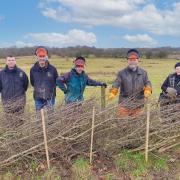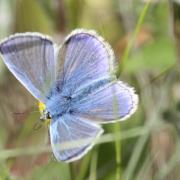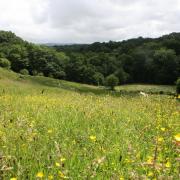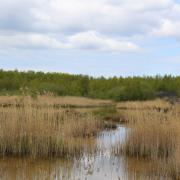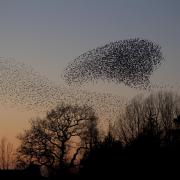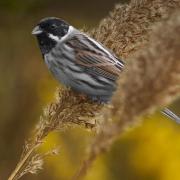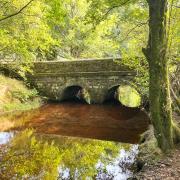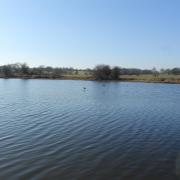Children now spend less time playing in nature than their parents did, The Lancashire Wildlife Trust’s Molly Toal discusses

Many adults, when they reminisce about their childhood, think of carefree days spent playing outside, exploring with friends and venturing far from home without adult supervision. These memories can form the foundation of many people’s life-long love of nature and their desire to help it thrive. But few children today are growing up with memories like these.
It’s no secret that children now do not play out as much as they once did and that those who do never roam as far as their parents or grandparents did when they were young. Increased levels of traffic, fears of stranger danger and lack of access to quality green spaces mean many parents are reluctant to let their children play outside. On top of this, a lot of play involves TV screens and video games. As a result, for many, the natural world seems to exist entirely separately from the urban world they are growing up in. It introduces some worrying questions – if children now have no connection to the environment, who will care about nature in the future? Who will protect it?
The Lancashire Wildlife Trust is part of a growing movement to get kids outdoors and connecting with nature through a unique outdoor learning programme called forest school. Forest school has a child-led ethos that offers children regular opportunities to succeed, improve self-esteem and develop as people, through practical learning and hands-on activities in the woods. The children are allowed to play freely, take risks and explore, all within a safe outdoor space and with support from trained forest school practitioners.
Thanks to support from players of People’s Postcode Lottery, the Lancashire Wildlife Trust’s fantastic education team have been running a forest school project with urban schools in Manchester since 2015 and in Liverpool since 2017.
In that time, they’ve worked with over 24 inner city schools and engaged over 1800 children with nature.
At forest school, children are encouraged to explore their own interests and use their imagination and creativity through activities that involve natural materials such as green woodwork, shelter building and natural art.

For many learners, these sessions can be their first real experience of playing in nature or exploring, and the team make sure that it won’t be their last. Each school joins the project for an entire year, and in that time, the education team train and support the teachers involved to become qualified forest school leaders themselves, so that the schools can continue to offer sessions to children every year and get more pupils outside.
During the training, the teachers spend an entire week completely immersed in a woodland, learning a variety of skills necessary to lead a forest school session: tool use, knot-tying, fire-lighting and more.
They gain knowledge of woodlands’ structure and management, wildlife identification, the forest school ethos and are given ideas for games and activities they can try with different age groups and abilities. Trainees even learn how to make wooden items like mallets and kazoos.
Project Officer, Louise Gaffing, said: ‘The sense of achievement you feel during training when you succeed at an activity, like making a kazoo, feels immense as an adult – so it must feel even greater as a child.’
The hope is that the children involved in the project will cherish their memories of forest school and that their respect for and interest in nature continues to flourish into adulthood. With forest school growing in popularly, it’s fantastic that the project is giving inner city children in the north west opportunities that all children deserve – to play outside.
Louise adds: ‘Through forest school, children discover that nature has a positive place in their lives. The children enjoy themselves so much that it can be eye-opening for their parents.

‘It’s always great when we hear that, thanks to forest school, families are spending more quality time together in the outdoors – exploring nature reserves, visiting parks or even making their own gardens more wildlife friendly.
‘We’re glad that our project is bringing both adults and children closer to nature and making their lives that bit more wild.’
To find out more about the project supported by players of People’s Postcode Lottery, contact Molly Toal at mtoal@lancswt.org.uk or visit www.lancswt.org.uk/forest-schools
Nature Moment by Forest School Officer, Suzanne Stewart
Growing up in Lancashire, I spent my childhood exploring parks and the countryside. I used to love paddling in the river and would make dams with rocks and sticks. I also used to go out on my bike up Rivington exploring and only went home when I was hungry. I still love walking and exploring with friends and my dog in my spare time now.




